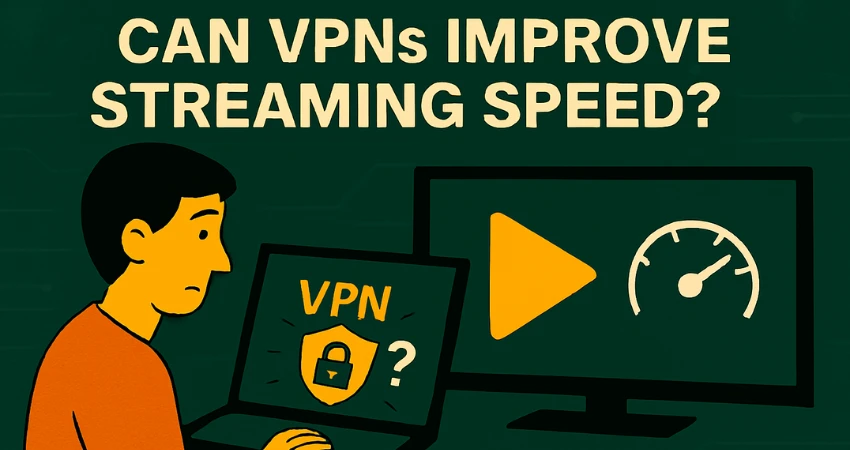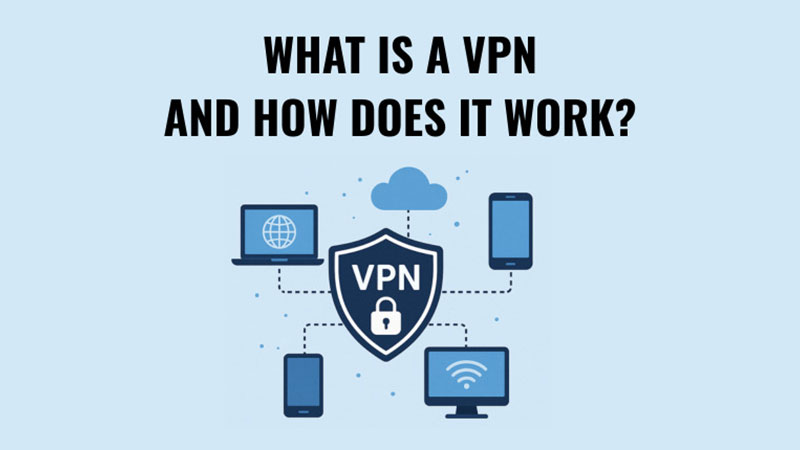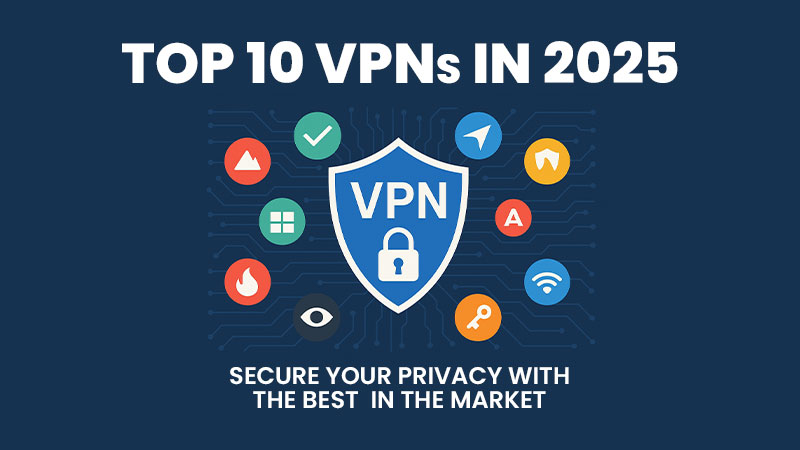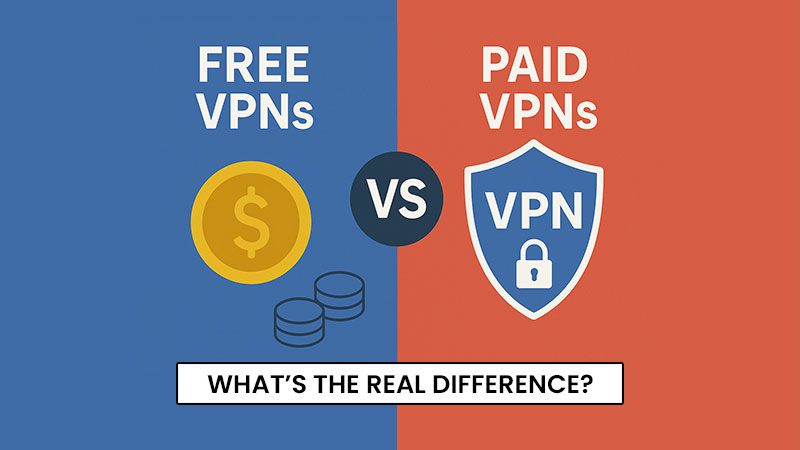In today’s digital world, streaming movies, TV shows, live events, and even gaming content has become an integral part of daily life for millions of people around the globe. With the rise of platforms like Netflix, Disney+, Amazon Prime, and YouTube, users expect seamless and uninterrupted entertainment experiences at all times. However, many encounter frustrating issues such as buffering, lagging, low video quality, and slow load times, which can diminish the enjoyment and accessibility of their favorite content. As a result, users are exploring various solutions to enhance their streaming experience. One of the most popular tools being discussed is the Virtual Private Network (VPN). Many wonder, Can VPNs Improve Streaming Speed? The short answer: it depends – but under certain conditions, a VPN can actually help enhance your streaming performance by bypassing restrictions, improving connection routes, and avoiding throttling from service providers.
What Is a VPN and How Does It Affect Streaming?
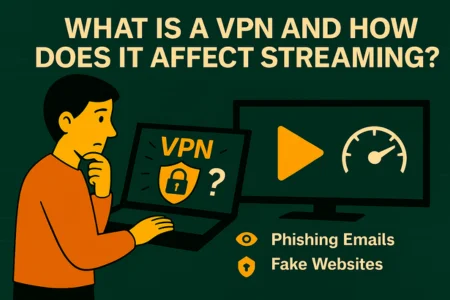
A Virtual Private Network (VPN) is a powerful tool that encrypts your internet connection and routes it through a secure server, masking your IP address and location. While VPNs are widely known for enhancing online privacy and bypassing geo-restrictions, many users wonder: Can VPNs Improve Streaming Speed?
The answer depends on several factors. In some cases, a VPN can actually enhance streaming performance by avoiding ISP throttling. Internet Service Providers often slow down bandwidth during high-traffic periods or when they detect heavy data usage – like streaming HD or 4K content. By encrypting your traffic, a VPN hides your streaming activity from your ISP, potentially preventing throttling and resulting in smoother playback.
Additionally, VPNs allow you to access content libraries from other countries, unlocking shows, movies, and sports events that may be restricted in your region. This is especially useful for platforms like Netflix, Hulu, or BBC iPlayer, where content varies by location.
However, not all VPNs are created equal. Free or low-quality VPNs may slow down your connection due to overcrowded servers or limited bandwidth. To truly answer Can VPNs Improve Streaming Speed, you need a premium VPN with fast, optimized servers for streaming. Look for features like unlimited bandwidth, dedicated streaming servers, and minimal latency.
When a VPN Can Improve Streaming Speed
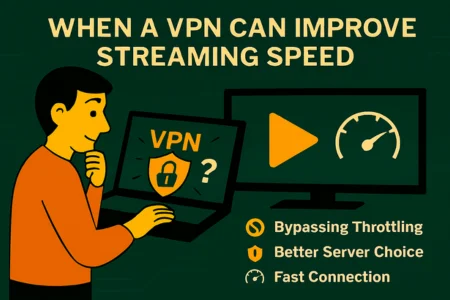
While using a VPN generally adds extra steps to your connection, there are scenarios where it can boost streaming performance. By addressing specific challenges like bandwidth throttling, network congestion, and inefficient routing, VPNs can offer tangible improvements in streaming speed and quality under certain circumstances.
- Bypassing ISP Throttling
Internet Service Providers (ISPs) sometimes intentionally slow down bandwidth for high-data activities like streaming, gaming, or downloading large files. This practice, known as throttling, is aimed at managing network traffic but can severely affect the user experience. A VPN masks your online activity, preventing your ISP from detecting that you’re streaming. As a result, throttling may be avoided, allowing your connection to maintain its full speed during playback. - Accessing Less Congested Servers
VPN providers offer a network of servers around the world. Some servers are strategically placed in regions where internet traffic is lighter, or the data route is optimized for speed. By connecting to these servers, you can experience reduced lag, smoother playback, and fewer buffering interruptions. This is especially helpful during peak usage times when local servers might be overwhelmed. - Improved Routing Paths
Internet traffic doesn’t always take the most direct route to its destination. Routing inefficiencies, congested pathways, and multiple network hops can slow down data transfer. A VPN can offer alternate routes by connecting you to servers that have faster or more reliable connections to streaming services. In some cases, this can result in quicker load times and better video quality. - Overcoming Regional Restrictions
Some streaming platforms limit content availability based on your location. By connecting to a server in a region where the content is accessible, you can not only unlock geo-restricted libraries but also access servers that may offer better speed due to lower latency or improved infrastructure. - Reducing Packet Loss and Improving Stability
Network disruptions, packet loss, and unstable connections can lead to poor streaming experiences. VPNs with reliable infrastructure can stabilize your connection by offering consistent server performance, helping to prevent playback interruptions and drops in video quality.
While a VPN won’t automatically make your internet connection faster, in these specific cases it can enhance streaming speed, stability, and access. Choosing the right VPN provider and connecting to optimal servers is important to unlocking these benefits.
While using a VPN generally adds extra steps to your connection, there are scenarios where it can boost streaming performance:
When a VPN Might Slow Down Streaming
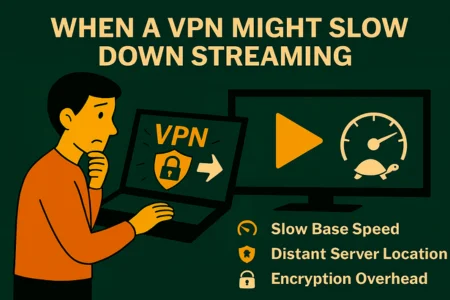
Not every VPN will enhance your streaming experience. In fact, it’s common for VPNs to slow speeds because of encryption overhead or server distance. Here’s when you might not see improvements:
- Using a free VPN with overcrowded servers
- Connecting to servers located far from your region
- Choosing a VPN protocol that prioritizes security over speed
Tips for Choosing a VPN for Improve Streaming Speed?
If you’re considering using a VPN to boost your streaming experience, here are some helpful tips:
- Pick a premium VPN provider with fast servers and unlimited bandwidth
- Select servers close to the streaming platform’s location to minimize latency
- Use protocols like WireGuard or IKEv2, which balance speed and security
- Test different servers to find the optimal connection for your location
- Check for split tunneling to route only streaming traffic through the VPN while keeping other tasks unaffected

